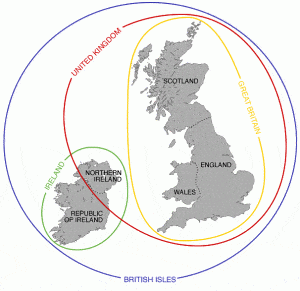Brexit or Britain’s exit from the EU has been a demand of many Britons due to a number of issues which arose ever since Britain became a member of the union in the year 1973.
Key issues “for” Brexit:
- Immigration-As the membership of EU expanded, more and more Europeans, especially from the poorer EU nations, started migrating to UK using the “freedom of movement” clause. This put a severe pressure on national resources and added up to the welfare expenditure.
- Security- There is a risk to national security if UK does not have any control over it’s borders.
- Employment- There will be a boom of job opportunities without the restrictions that EU regulations impose.
- Trade- The EU needs British markets and individual trade deals with European countries can be easily negotiated.
- Economy- London’s status and dominance as the financial centre of Europe is unquestionable as it is already a global power base.
Key issues “against” Brexit:
- Immigration- EU migrants contribute more to the national economy than they take out.
- Security- In the era of international terrorism and criminality, cooperating with the EU will make the UK safer.
- Employment- As three million jobs are tied to the EU there could be a job crisis if the UK leaves the EU.
- Trade- Access to the single European market, free of tariffs and border controls, is important for the UK as 45% of it’s trade is with the EU.
- Economy- Leaving the EU will put the dominance of London, the Europe’s financial centre at risk as banks will move out.
23rd June was decided as the date to hold a referendum on the question whether Britain should ‘leave’ or ‘remain’ in the EU.
A referendum is a general vote by the electorate on a single political question which has been referred to them for a direct decision. In the case of Britain, those who are eligible to vote in the parliamentary elections can get themselves registered to vote in a referendum.
A similar referendum was also held in 1975 when the then PM called for it after intense opposition from within the country on UK staying with the European Economic Community. But the results favored the ‘Remain’ campaigners.
With a considerably high voter turnout of 71.8%, 51.9% of the voters voted for BREXIT.
State-wise breakdown of votes
United Kingdom is a country which consists of England, Scotland, Wales and Northern Ireland.
England, Scotland and Wales together constitute the Great Britain.

LEAVE- England, Wales
REMAIN- Scotland, Northern Ireland
Demographic breakdown of votes
- The LEAVE vote overlapped strongly with the UK’s older population.
- The higher the level of education, the higher the support for REMAIN.
- Areas with high immigration wanted to stay in the EU.
Analysis
The younger generation wants UK to ‘Remain’ in the EU because it ensures a lifetime of freedom to travel and work in any of the 28 member states, each with it’s own culture to explore, it’s own charms and opportunities. EU grants young people access to an array of jobs, education opportunities and lower prices.
While the older generation has voted in favor of BREXIT to prevent the in migration of non-Britons which leads to inter- mingling of varied cultures and to further their conservative outlook.










